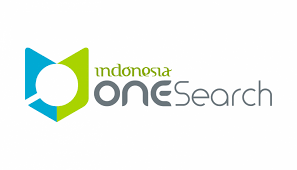The Effects of personal finance fintech Utilization on generation z's personal financial management
DOI:
https://doi.org/10.52300/jemba.v5i1.21466Keywords:
Digital financial application, Fintech, Gen Z, Financial literacy, Financial managementAbstract
The advancement of digital technology has significantly influenced various aspects of life, including personal financial management. Generation Z, known for its strong affinity with technology, actively uses a variety of digital financial applications such as e-wallets and financial planning platforms. This study aims to examine the extent to which the use of financial applications affects financial management behavior among Gen Z individuals residing in Jakarta. A quantitative approach was employed, using a descriptive method and data collection through questionnaires. The sample was selected purposively, consisting of individuals aged 18 to 24 years. Data analysis was conducted using the SEM-PLS model. The results show that the use of financial applications has a positive and significant influence on financial management behavior, as evidenced by a coefficient value of 0.662. The instruments used have been proven to be valid and reliable, while the analysis model demonstrates a moderate level of predictive capability. In conclusion, financial applications not only serve as technical tools but also help enhance financial understanding and improve financial management habits. These findings are expected to serve as valuable input for app developers, the government, and educational institutions in designing strategies to improve digital financial literacy among the younger generation.
Downloads
References
Ajzen, I. (1991). The theory of planned behavior. Organizational Behavior and Human Decision Processes, 50(2), 179–211. https://doi.org/10.1016/0749-5978(91)90020-T Alhosseiny, H. (2023). FINTECH: CONCEPT, OPPORTUNITIES AND CHALLENGES AND EGYPT’S FINTECH LANDSCAPE. Journal of Organizational Culture, Communications and Conflict, 27, 1–18. Amalia, F. (2016). THE FINTECH BOOK: THE FINANCIAL TECHNOLOGY HANDBOOK FOR INVESTORS, ENTREPRENEURS AND VISIONARIES. Journal of Indonesian Economy https://doi.org/10.22146/jieb.23554 and Business, 31, 345. Anugula Sethupathy, U. K., & Pub, I. (2025). DIGITAL PAYMENT PLATFORMS IN EMERGING MARKETS: A TECHNICAL FRAMEWORK FOR INDUSTRYSPECIFIC FINANCIAL INCLUSION. INTERNATIONAL JOURNAL OF COMPUTER ENGINEERING & TECHNOLOGY, 16, 3803–3820. https://doi.org/10.34218/IJCET_16_01_262 Barroso, M., & Laborda, J. (2022). Digital transformation and the emergence of the Fintech sector: Systematic literature review. Digital Business, 2(2), 100028. https://doi.org/https://doi.org/10.1016/j.digbus.2022.100028 Byrne, A. (2007). Employee Saving and Investment Decisions in Defined Contribution Pension Plans: Survey Evidence from the UK. Financial Services Review, 16(1). Catalini, C., & Gans, J. S. (2020). Some simple economics of the blockchain. In Communications of the ACM (Vol. 63, Issue 7). https://doi.org/10.1145/3359552 Chen, H., & Volpe, R. (1998). An Analysis of Personal Financial Literacy Among College Students. Financial Services Review, 7, 107–128. https://doi.org/10.1016/S10570810(99)80006-7 Davis, Keith & Newstrom, W., J. (1989). Human Behavior At Work: Organizational Behavior. McGraw-Hill International. Del Sarto, N., & Ozili, P. K. (2025). FinTech and financial inclusion in emerging markets: a bibliometric analysis and future research agenda. International Journal of Emerging Markets, 20(13), 270–290. https://doi.org/10.1108/IJOEM-08-2024-1428 Dhandayuthapani, S. P., & Vinothkumar, N. (2020). Financial Literacy and its Determinants. Ediagbonya, V., & Tioluwani, C. (2023). The role of fintech in driving financial inclusion in developing and emerging markets: issues, challenges and prospects. Technological Sustainability, 2(1), 100–119. https://doi.org/10.1108/TECHS-10-2021-0017 Fardah Assegaf. (2021). BI governor projects 39-percent rise in digital transactions in 2021. Antara. Kohardinata, C., Suhardianto, N., & Tjahjadi, B. (2024). Peer-to-peer lending (P2P) as disruptive, but complementary in Covid-19 exogenous shock. Business: Theory and Practice, 25(1 SE-Articles), 241–251. https://doi.org/10.3846/btp.2024.16584 Kurniawan, M. R. F., & Retnasih, N. R. (2024). The Impact of Financial Literacy and Fintech Adoption on Personal Financial Management Among University Students. Proceeding ICAMEKA: International Conference Accounting, Management & Economics Uniska, 1, 639–652. kediri.ac.id/index.php/icameka/article/view/53 https://icamekaproceedings.fe.uniskaLusardi, A., & Mitchell, O. S. (2014). The Economic Importance of Financial Literacy: Theory and Evidence. Journal of Economic Literature, 52(1), 5–44. https://doi.org/10.1257/jel.52.1.5
Lusardi, A., Mitchell, O. S., & Curto, V. (2010). Financial literacy among the young: Evidence and implications. National Bureau of Economic Research, 358–380. Najong, F. J., Kusumawardhani, R., & Johannes Maysan Damanika. (2020). Financial literacy among Generation Z: Relationship between knowledge, skills, attitudes, and behavior (Case study of students of the Faculty of Economics University Sarjanawiyata Tamansiswa Yogyakarta). Jurnal https://doi.org/https://doi.org/10.21107/pamator.v18i2.29818 Pamator, 13(2). Novel, N. J. A., & Tresna, P. W. (2025). The Perspectives of Generation Z on the Future Work and Workplace. Review of Integrative Business and Economics Research, 14(2), 539–554. Orton, L. (2007). Financial Literacy: Lessons from International Experience. Canadian Policy Research Networks. Pasaribu, D., Judijanto, L., Vandika, A. Y., Bilondato, N., Sudarmanto, E., & Basri, T. S. (2024). The Role of Fintech Innovation in Financial Inclusion: A Literature Review of Emerging Tren and Challenges. Innovative: Journal Of Social Science Research, 4(2), 3784–3792. Peter, G., Alexander Koch, J., & Siering, M. (2017). SSRN-id2928833. Forthcoming in the Journal of Business Economics (2017), Volume 87(January), 537–580. Putranto, G. A., & Digdowiseiso, K. (2023). THE INFLUENCE OF FINANCIAL LITERACY AND INCOME PERCEPTION ON INVESTMENT DECISIONS OF MUTUAL FUNDS IN MANAGEMENT PROGRAM REGULAR CLASS FACULTY OF ECONOMICS AND BUSINESS NATIONAL UNIVERSITY WITH GENDER AS A CONTROL VARIABLE. Jurnal Ekonomi, 12(02), 820–824. https://ejournal.seaninstitute.or.id/index.php/Ekonomi/article/view/1798 Ramadhan, N. D., Fhatturohmah, S., Ramadhani, S., & Firmansyah, E. (2023). Analysis of Digital Wallet Usage on Consumptive Lifestyle. Journal of Islamic Economics and Business, 3(2 SE-Articles), 118–136. https://doi.org/10.15575/jieb.v3i2.30492 Salasa Gama, A. W., Buderini, L., & Astiti, N. P. Y. (2023). Pengaruh Literasi Keuangan, Gaya Hidup, Dan Pendapatan Terhadap Kkemampuan Pengelolaan Keuangan Pribadi Mahasiswa Generasi Z. KRISNA: Kumpulan Riset Akuntansi, 15(1), 90–101. https://doi.org/10.22225/kr.15.1.2023.90-101 Statistik, B. P. (2021). Hasil Sensus Penduduk 2020. Badan Pusat Statistik. Sugiyono. (2017). Metode Penelitian Kuantitatif, Kualitatif, dan R&D. Wahyu, D., Sari, P., & Anwar, M. (2021). Pengaruh Literasi Keuangan Terhadap Perilaku Menabung Dengan Self Control Sebagai Variabel Mediasi Pada Mahasiswa S1 FEB UPN “Veteran” Jawa Timur. SEIKO: Journal of Management & Business, 5(4), 8192. Widyani, D. (2023). The Impact Of Insurtech On The Insurance Business Model In Indonesia. The International Journal of Financial Systems, 1(2 SE-Articles), 151184. https://doi.org/10.61459/ijfs.v1i2.24











